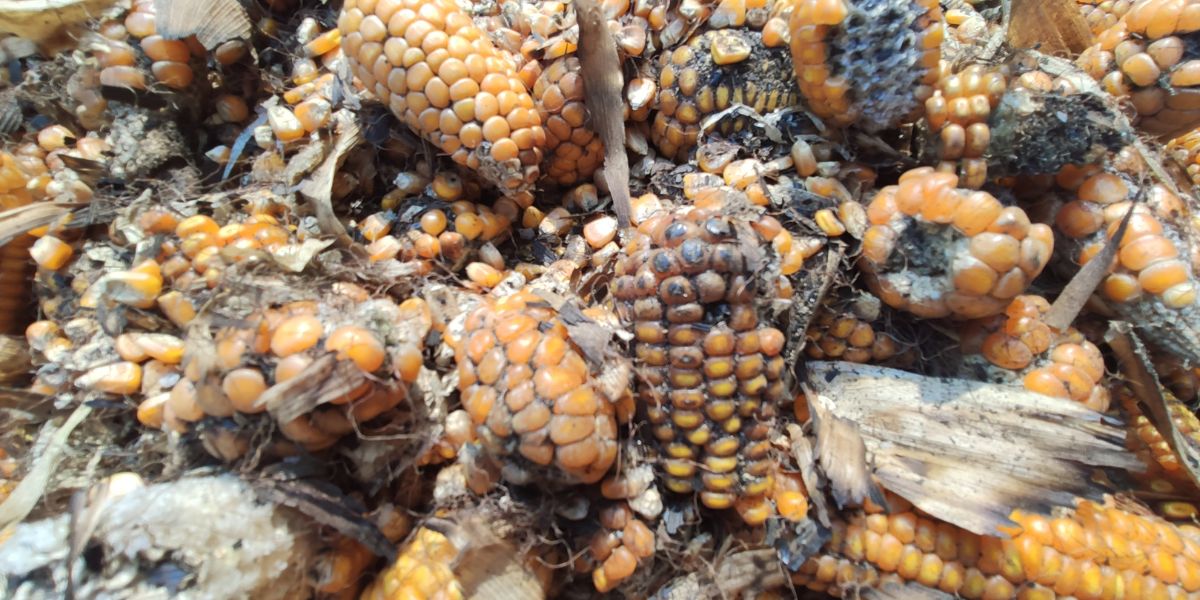Welcome to the intricate world of mycotoxins in Australia, where we unravel the mystery behind these potentially harmful substances that can impact our food and health. In this comprehensive exploration, we’ll delve into the definition of mycotoxins, their presence in Australia, and the crucial role of companies like Air Quality Australia in ensuring our food safety.

Understanding Mycotoxins
Mycotoxins, though tiny, are powerful compounds produced by certain moulds. These substances can potentially cause harm if not managed properly, posing a challenge to food safety and public health. In Australia, mycotoxins are closely monitored to safeguard the population’s well-being.
Defining Mycotoxins in the Australian Context
In the Australian context, mycotoxins are substances that authorities rigorously regulate to ensure the safety of our food supply. These invisible threats can contaminate crops during growth, harvesting, or storage, making it imperative to have stringent testing and monitoring measures in place. Air Quality Australia is a key player in this realm, specialising in testing mycotoxins and contributing significantly to maintaining food safety standards.
Common Hotspots for Mycotoxins
Mycotoxins are not confined to a single environment. They can be found in diverse settings, from the fields where crops are grown to the food on our tables. Understanding these common hotspots is crucial for implementing effective control measures.
Crops, especially grains, nuts, and dried fruits, are known to be susceptible to mycotoxin contamination. Additionally, factors such as inadequate storage conditions and climatic variations can contribute to the proliferation of mycotoxins.
The Significance of Mycotoxins in Australia
Why should we be concerned about mycotoxins in Australia? The impact on agriculture, food safety, and public health makes understanding and addressing these microscopic threats paramount.
Mycotoxins can lead to a range of health issues when ingested, from mild symptoms to more severe consequences. This underscores the critical need for monitoring and controlling their presence in our food supply.
Health Implications of Mycotoxins
To comprehend the significance of mycotoxins, it’s essential to understand their potential health implications. Mycotoxin exposure can lead to various health issues, ranging from mild symptoms like nausea and headaches to more severe conditions affecting the liver and kidneys. Vulnerable populations, such as children and the elderly, are particularly at risk. This emphasises the importance of thorough testing and monitoring to prevent adverse health effects.
Air Quality Australia: Guardians of Food Safety
Amidst these challenges, companies like Air Quality Australia play a pivotal role in upholding food safety standards. With their specialised knowledge and advanced testing methods, they contribute significantly to identifying and quantifying mycotoxins in various food products. The collaboration between regulatory authorities and expert testing agencies is vital in ensuring that the food we consume is safe and meets the necessary standards.
Exploring Mycotoxin Testing
Mycotoxin testing involves sophisticated methodologies to detect and quantify these microscopic contaminants. Air Quality Australia employs state-of-the-art techniques to analyse food samples, providing accurate and reliable results. This testing helps identify mycotoxin presence and helps determine the levels, enabling authorities and producers to take appropriate actions to mitigate risks.
The Role of Climate in Mycotoxin Presence
Australia’s diverse climate can significantly influence the presence of mycotoxins. Certain weather conditions, such as high humidity and temperature fluctuations, create favourable environments for mould growth and mycotoxin production. Understanding these climatic factors is essential for developing strategies to minimise mycotoxin contamination in crops.

Regulatory Standards for Mycotoxins in Australian Food
To maintain high food safety standards, regulatory authorities in Australia have established guidelines and limits for mycotoxin levels in various food products. Compliance with these standards is crucial to ensure that consumers are not exposed to harmful levels of mycotoxins. Air Quality Australia supports regulatory efforts by conducting rigorous testing to ensure food products meet these standards.
Importance of Compliance in Food Safety
Ensuring compliance with regulatory standards is a multifaceted process involving collaboration between government agencies, food producers, and testing laboratories. The significance of adherence to these standards cannot be overstated, as it directly impacts the safety and well-being of consumers. Companies like Air Quality Australia play a key role in this compliance ecosystem, providing reliable data to confirm that food products meet or exceed established safety thresholds.
Addressing Mycotoxin Contamination in Vulnerable Crops
Certain crops are more prone to mycotoxin contamination, posing challenges for farmers and consumers. Grains, nuts, and dried fruits, in particular, are susceptible to mycotoxins, and addressing this issue requires a multi-faceted approach.
Farmers can implement best practices during cultivation, harvest, and storage to minimise the risk of contamination. Additionally, testing and monitoring by companies like Air Quality Australia assist in early detection and prevention.
Mitigating Risks through Preventive Measures
Preventing mycotoxin contamination requires a proactive approach. Farmers can implement various measures, such as proper storage conditions, effective pest control, and timely harvests, to reduce the risk of mould growth and mycotoxin production.
Public awareness campaigns can educate consumers on proper food storage and handling, further minimising exposure risks. Collaboration between farmers, regulatory bodies, and testing agencies is key to establishing comprehensive preventive measures.
Recent Incidents and Lessons Learned
Staying informed about recent incidents related to mycotoxins is crucial for understanding evolving challenges and improving preventive measures. By examining case studies and incidents, valuable lessons can be learned to enhance mycotoxin detection, mitigation, and prevention strategies. Air Quality Australia‘s involvement in such incidents underscores the importance of continuous improvement and adaptability in addressing emerging challenges.
What’s Next?
This is just the beginning of our exploration into the world of mycotoxins in Australia. In the upcoming articles, we will delve deeper into specific aspects, such as recent incidents related to mycotoxins, preventive measures for farmers, and educational resources for consumers. Join us on this informative journey as we uncover more about mycotoxins and how Air Quality Australia contributes to keeping our food safe.
Stay tuned for our next blog, which will explore recent incidents related to mycotoxins in Australia!

